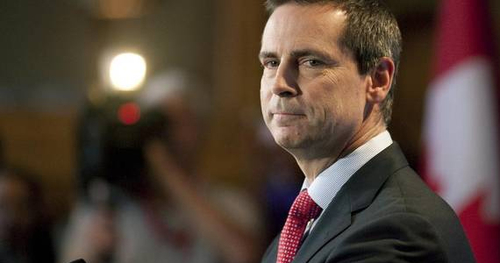I’ll bet you a deep dish pizza that you have an opinion on the Chicago teachers’ strike. It’s like asking if the White Sox or the Cubs represent Chicago best. It’s hard to take a neutral stance on strikes, largely because they involve that which matters so much: work, wages and communities. But is there a way to put a normative framework on these events which might help us understand whether we should lend one side or another our support, and if so, why? Strikes and lockouts are actions taken by a given party (unions or employers, whether private or public) to enforce their will on the other party through the use of power to achieve a desired end. That power is exerted either through the withholding of labor (a strike, initiated by the union) or through the withholding of work (a lockout, initiated by the employer). Does that sound familiar? If you’re thinking this sounds remarkably like Clausewitz’s definition of war, “the continuation of politics by other means,” then you’re right. Strikes and lockouts are the continuation of labor negotiations by other means. Thinking of strikes in this way is a helpful tool, because, as with political disputes, it helps us place economic disputes into a context where questions about justice can be asked. I’ve found it helpful to transpose just war criteria onto into labor relations terms. Here is a short, albeit imperfect, list which I’ve found useful in thinking about strikes. Jus ad InflictumLegitimate authority. A strike is only just if it is called by the union, within the laws of the land and within its own rules. Just cause. It must be waged in response to a particularly egregious proposal or action which will damage either party. Mere discomfort should not be enough. Right intention. It must be waged to right a wrong. Any strike which is waged with the intent of “getting back” at the other party is not just. Probability of success. A strike which is, on balance, unlikely to effect the change the union desires is not a just strike. Proportionality. A union must consider the effects that their strike will have on the wider public.Additionally, it’s helpful to note that there are rules which should govern action within strikes, themselves. The criteria fall under the category of Jus in Inflictum:Obedience to the laws of the land. Boundaries set out by political authorities must be respected, violence is strictly prohibited, and officers of the law are respected and obeyed if they instruct within the law. Proportionality. Labor must only withhold its labor. It may not engage in subterfuge or sabotage by other means in order to enforce its will. This, of course, does not preclude unions from mounting aggressive media or information campaigns. Discrimination. Labor should focus on enforcing its will on the employer. As with war, there will be “collateral damage” (i.e. traffic is slowed, some services withheld), but these should not be pursued intentionally.Some in the world of labor relations might suggest that such criteria set the bar too high—that strikes are not as damaging as war, and thus don’t require such extensive justification. But those who consider work to be a cooperative venture between labor and capital, and who view the preservation of social goodwill among workers and employers to be critical in the pursuit of both justice and good work will note that strikes, like war, are extremely damaging and often have long-term downsides. In each particular case, it is true that there are many, sometimes conflicting variables to consider, but, as Steven Garber notes, all justice this side of Eden and the Lord’s return is proximate. Under this framework, the Chicago teachers’ strike failed to meet three, and possibly four, of the jus ad inflictum criteria. First, there was no just cause: the strikes were clearly not in response to outrageous or particularly egregious proposals by the city. Likewise, there was no clear wrong which the union was trying to rectify, and even if there was, the strike action seemed to disproportionately and negatively affect vulnerable children, especially the children for whom school is a rare place of stability and peace. Finally, the Chicago courts were in the process of deciding whether or not the strike was actually lawful, as the teachers are forbidden by law to strike for “non-economic matters.” If they had lost this case, they would have failed to meet the “legitimate authority” clause. But, regardless of this, the strike happened and damage to both parties—and the public—has been done. And, whether a strike is justified or not, its conclusion demands, as Robert Joustra recently noted, a just peace. It is not enough to repay a wrong with another. The action must be aimed at a solution in which not only justice is achieved, but where justice in understood in the terms set out by the Book of Common Prayer, where “there is no strife among those who are engaged in the varied tasks of industry and commerce...That all, seek only what is right...[and] continue in brotherly union and concord, to their own well-being and the good of their fellow men.”

Ray Pennings is interviewed by Michael Coren for Sun News
September 26, 2012

The Globe and Mail covers Cardus report on <I>Bill 13</I>
September 26, 2012

The Chicago Teachers’ Strike: A Just Conflict?
September 21, 2012

Doug Koop covers Cardus cities research for Rethink Urban
Doug Koop covers Cardus research on Cities for Rethink Urban. Leaning on the research in Living on the Streets he suggests that faith communities are already effective and important agents in renewing downtowns. Read the entire article here.
September 18, 2012

Defining justice in Libya and Egypt
“Justice will be done.†So said President Barack Obama after attacks in Libya resulted in four slain Americans, including Ambassador Chris Stevens. Obama has dispatched two warships and marines to Tripoli, even as the violence in Libya spreads to teetering Yemen, as crowds try to overrun the embassy in Cairo and, one fears, across more of the Middle East. Events are moving fast now, and we’re reassured in the midst of it that “justice will be done.†Will it? Can justice be done? It is easy in moments of grief and shock to mistake justice for retribution. The justice of the American president, in this case, looks comforting, right. Maybe it is those things. Hard power dispatched to far-off places to make right wrongs suffered by an enemy is a familiar American trope. But in those moments, it’s worth recalling Daniel Philpott’s urgent question in his important new book, Just and Unjust Peace. "In landscapes of past political injustice - piled and strewn with bones, rubble, and manifold wounds, emanating hatred, lamentation, revenge, resentment, and despair - what is the meaning of justice?†Philpott is a serious Catholic asking practical questions. His research covers places such as Bosnia, Rwanda, the Congo, Iraq, Afghanistan and more. Over and over he finds that an integral part of justice being done is reconciliation. Reconciliation is not the work that starts after the marines and the warships have done their jobs, but intrinsic from the start. It is a fundamental category of justice. This is a hard position to lobby after suffering violence. When Obama assures the American people that “justice will be done,†we are meant to feel he means retribution and restitution. The people who have perpetrated this act will be made responsible. Reconciliation certainly does not preclude restitution, but it does contextualize it. Justice demands that after the warships have raised anchor, the marines are lifted out and the drones buzz away, states, communities - maybe even radicals - need the possibility of building stable, flourishing societies. Reconciliation is not a discretionary luxury after withdrawal. It is incumbent on the justice of making war. But what kind of reconciliation can there be with people like Osama bin Laden’s onetime mentor, Muslim cleric Abdul Majid al-Zindani, who fomented an attack on the American embassy in Yemen, where protestors burned two vehicles, stripped and burned the American flag and replaced it with a banner proclaiming the Islamic faith? What peace can there be with those who hate so much? Answers range from the usual cosmopolitan navel gazing, asking why we are so hated, to a simple dismissal of reconciliation in this context. Many pundits over the last few days have pointed to the irresponsibility of making the incendiary amateur film that is the subject of many of the protests. It is true, of course, that such acts have responsibilities intrinsic to them. But it is a different thing from the making of such a film to storming embassies, or using the film as a pretext for a possibly pre-planned attack, killing diplomats and inciting violence. Justice also demands proportionality. The justice of war finally cedes that there may come times when there can be no peace, when war will be made, when dialogue and conversation will fail. But Philpott’s reminder is instructive as warships sail: justice cannot be done, cannot be finished, until humans flourish. It is a terrible thing that human flourishing may demand the making of war. But it is a necessary thing that the making of war never be left unfinished, as we have too long been in the habit of doing, of leaving an unjust peace. Justice will be done not only when the deaths of American diplomats have been avenged, but when a sustainable peace for human flourishing comes to unstable Libya, to teetering Yemen, to the worrying rhetoric of the Muslim Brotherhood in Egypt. In Philpott’s justice, we can then certainly agree with President Obama’s arresting invocation: “Justice will be done.
September 14, 2012

Where’s our ambassador for religious freedom?
Canada's abrupt severing of diplomatic ties with Iran has alarmed pundits of all stripes. It should. Cutting off diplomatic relations is a drastic step and, in this case, one with little public preamble. But while the rupture in Canadian-Iranian relations gets dissected, the key questions are: What do our ambassadors do, and what are they for? Asked that way, the fast and furious closure of our increasingly marginal embassy in Tehran looks less shocking than the prolonged absence of an ambassador for religious freedom. Envoys provide critical intelligence to both foreign affairs and political elites. They work hard to cultivate productive relationships and develop expertise even in parts of the world most Canadians would consider morally dodgy at best. Canada has sustained formal foreign ties with many states such as today's Iran in hopes of reformation, conversation and dialogue. Abandoning that hope rightfully raises critical concerns about whether we might have quit too soon. But such debate shouldn't crowd out equally important questions about our approach to the growing swaths of the globe that mix their politics and their religion. The United States recognized this when Bill Clinton established the Office of International Religious Freedom in 1998. Even that might have been too slow given that, despite its cultivated political-theological expertise, the Americans were still analytically blindsided three years later by the events of 9/11. Fast-forward 11 years and we now have no doubt that, of the world's 1.6 billion Muslims (23 per cent of the world's population), at least some have distorted their political-theological beliefs into a world view of violence and terror. A far greater percentage, of course, simply live lives of religious devotion, but even that has political-theological consequences. Most of the world is not secular. Some of that world is violently opposed to our secularity. Yet, we lack the tools of analysis to engage this with direct diplomacy. Globalization hasn't marginalized the powers of the state, any more than the decade after 9/11 caused the collapse of an American empire. But the comparison is instructive: It's not that one has fallen so far, so much that others have risen so fast. Fareed Zakaria's post-American world is now widely accepted, a world in which American decline isn't the headline but rather the "rise of the rest." The same is true of state-to-state diplomacy. States clearly continue to enjoy political monopolies in global politics, but the global resurgence of religion has caught some regimes off-balance. The secular state persists but now alongside "the religious rest." In the aftermath of the 2006 bombing of Samarra's al-Askari Mosque, one of the holiest Shia sites, teenagers chanted in the streets across Iraq: "We are the soldiers of the clerics. We await the orders of our preachers!" In a global climate charged with religious devotion, religious illiteracy is not only imprudent for Canadian foreign policy, it's dangerous. Not every problem in the world is religious, but almost every enduring solution will require some level of religious accommodation. That's a numbers game, a simple observation. The truth is, it doesn't really matter how cosmopolitan Westerners feel about other societies mixing religion with their politics. We may have cathartic domestic fights about it, but the numbers are pushing in the other direction globally. Hate it or love it, doing business or politics around the world will increasingly mean the need for religious literacy. Canada has its own somewhat workable secular consensus, and we shouldn't abandon it. What we must do is learn how to relate to the new (and old) ways of doing politics, the theological kind among them, in the rest of the world. That's what ambassadors are for. The real issue isn't just about embassies closed, but which ones are too long unopened. That's something that an ambassador for religious freedom, working out of the new Office of Religious Freedom in the Department of Foreign Affairs, might set right.
September 14, 2012

Religious identity formation among adolescents: The role of religious secondary schools
To read the full article, click here .
September 1, 2012

First Things First
If you make secondary things primary, you lose both. C.S. Lewis put it this way: “You can’t get second things by putting them first; you can get second things only by putting first things first.†Such has been our failure in the marriage debate. By debating the definition of marriage, we have lost the debate over the value of marriage. It is no longer an unquestioned assumption that marriage is a social good. It is a choice, but not a necessity. That is the perception of many moderns today, particularly among the young. It was once assumed that the family was the indispensable foundation of society – so goes the family, so goes civilization. That is not the perceived reality of many. Marriage is a legal encroachment on individual freedom, an outdated social pattern that is gradually going the way of the horse and buggy. The Pew Research Center found that 40 percent of Americans view marriage as “obsolete.†While the debate has centered on “same-sex†marriage, the bigger question is marriage itself. For the first time, there are more adults that have never been married than have been married. There are more couples without children than with them. Common law marriage in Canada accounts for 44 percent of the total. Approximately 60-70 percent of couples cohabit before marriage. And cohabiting is not just for young adults, the 50-plus group represents nearly one-third of the approximately 7.5 million people of all ages who were living together in 2010. The new normal is not only differing arrangements in marriage, but alternative to marriage. Marriage is no longer perceived as an unquestioned social good. Canadian philosopher Charles Taylor observes, “Every person, and every society, lives with or by some conception(s) of what human flourishing is: What constitutes a fulfilled life? What makes life really worth living? What would we most admire people for?†Marriage is no longer linked to human flourishing. Today’s society places a premium on independence, freedom, and self-fulfillment, not dependency, community, and boundaries – values that marriage requires. One can conceive of a society where marriage is no longer central, because we are already becoming that society. When Nietzsche spoke of the death of God in 1880, he was anticipating a world in which appeals to the transcendent were no longer a social reality. This is our world. University of Pennsylvania sociologist Philip Rieff writes, “Culture and sacred order are inseparable, the former the registration of the latter as a systemic expression of the practical relation between humans and the shadow aspects of reality as it is lived. No culture has ever preserved itself where it is not a registration of sacred order.†Our cultural situation, he concludes, is “unprecedented in human history.†Nietzsche asked, “Who gave us the sponge to wipe away the entire horizon?†Marriage as a sacred gift, as a legal contract, as a social good are all being wiped away from our civic horizon. There is a big “But†in this discussion. For social perceptions do not create reality, which is why Rieff observes that no culture has ever been preserved under these conditions. There is a huge disconnect been the cavalier manner in which marriage is perceived and the measurable social impact of its demise. The sociological research is pretty uniform across cultures that marriage is a social good – a benefit to both individual and civic flourishing. Novelist Lisa Dierbeck noted on Oprah, “I don’t believe in casual sex. It’s not that I’m opposed to it exactly, it’s just that – in my own experience – no such thing exists.†She goes on to say, “casual†is a “code word for apathy.†“If someone says, ‘This is only physical,’ my translation is: ‘I don’t care about you.’ Forget casual. The more accurate word is heartless.†Casual, apathetic, and heartless is the relational dynamic played out week to week on HBO’s hit series, “Girls.†Hannah Horvath, played by Lena Dunham, depicts this apathy and heartlessness in her on again off again relationship with Adam Sackler. The tagline for the show is “Living the dream. One mistake at a time.†“Girls†is a painful depiction of narcissism and nihilism – and the relational collateral damage that stems from it. Friends with benefits doesn’t work, a point even acknowledged by the actors that depict the concept in the Hollywood film of the same name. When perceptions don’t square with reality, reality wins. The same is true socially. Dysfunctional families are the source of a myriad of social pathologies. It may seem like a religious cliché to appeal to the fifth Commandment, “Honor your father and mother that you may enjoy long life in the land the Lord God gives to you†(Exodus 20:12). This is the first commandment with a promise attached to it. In fact, it is not a religious promise as much as a sociological reality. Dallas Willard observes, “The promise is rooted in the realities of the human soul. A long and healthy existence requires that we be grateful to God for who we are, and we cannot be thankful for who we are without being thankful for our parents, through whom our life came.†And the sociological studies back this up repeatedly. Social pathologies, incarceration, poverty, depression, health, longevity, cost of government, graduation rates, domestic violence are all tied to stable families and marriages. We have embraced a lie and from it we will reap a whirlwind. There is a civic cost to living out of touch with reality. Sadly, the reality of Christian believers is not greatly different from those with no religious convictions. What is the story being told behind closed doors within one’s own home? Dick Keyes writes, “If Christian parents want their children to be Christ-like, the parents’ lives must be ‘good stories.’†“A child looks out at the many options that life offers, and compares stories.†Finger wagging about abstinence, or the evils of cohabitation and the like, will have far less impact than the joyful love expressed between Christian spouses. How many couples do you know that have a joyful, loving marriage? Perhaps this is the ground zero of cultural renewal. We should stop blaming politics, Hollywood, or a beleaguered minority. The problem lies with the vast number of Christians who fill church pews week to week. If marriage is the building block of civilization, then we need to start with our own marriages. Do our marriages make a compelling case for human flourishing? Is it a witness to the “good life� We can talk abstractly about cultural renewal, but surely it begins at home. It’s time to make first things, first things once more.
August 29, 2012

Joustra publishes in Routledge Handbook of Religion and Security
Robert Joustra publishes, "Always Reforming: Protestantism and International Security†in Dennis Hoover and Chris Seiple, and Pauletta Otis (eds), Routledge Handbook of Religion and Security. This Handbook breaks new ground by addressing global security through the lens of religion and examining the role religion plays in both war and peace. In recent years there has been a considerable upsurge of public concern about the role of religion in contemporary violence. However, other than historical materials, there has been a relative neglect of the subject of religion and security. The Routledge Handbook of Religion and Security fills this gap in the literature by providing an interdisciplinary, comprehensive volume that helps non-specialists and experts alike understand how religion is both part of the problem and part of the solution to security challenges. Featuring contributions from many of the key thinkers in the field, the Handbook is organized into thematic sections, reflective of three basic questions: What does religion think of security?; What does security think of religion?; and, What happens when the two are mixed in specific real-world cases of religious conflict? This Handbook offers analyses of how nine different world religions have related to issues of war and peace, theologically and practically; overviews of how scholars and practitioners in nine different topical areas of security studies have (or have not) dealt with the relationship between religion and security; and five case studies of particular countries in which the religion--security nexus is vividly illustrated: Nigeria, India, Israel, the former Yugoslavia and Iraq. This Handbook will be of great interest to students of religion, security studies, war and conflict studies and IR in general. Find more information and order the volume here.
August 27, 2012
